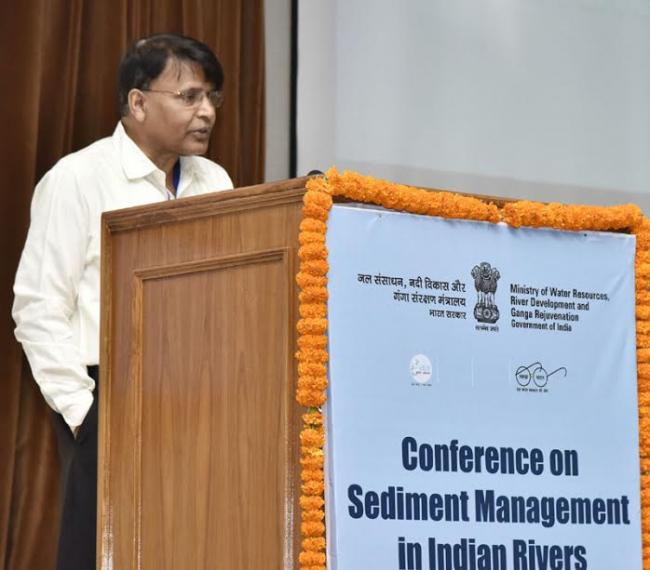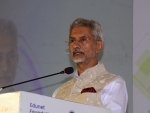
Central government exploring ways for sediment management of Indian rivers
He was speaking at the inauguration of a national seminar on Sediment Management in Indian Rivers organized by Ministry of Water Resources, River Development and Ganga Rejuvenation.
Kumar said several committees have been constituted in the past to look into the silting problems in rivers of India and they have suggested suitable remedial measures.
He expressed the hope that the conference will be a step ahead in this direction and extensive consultations among varied stakeholders will result in evolving a comprehensive policy.
Kumar said it is essential to devise a methodology for sediment management which is environment friendly and feasible technically as well as economically.
He said that over the years, silting of rivers has assumed serious proportions.
According to the Chariman, as of now there is general feeling that flood prone rivers are aggrading and undergoing changes in carrying capacity, leading to rise in flood level.
Kumar said common practices carried out by river management agencies demonstrate that sediment management till late has been based on limited scientific knowledge.
He was of the opinion that a different approach to sediment management is desirable, incorporating knowledge and management of sediments at the basin skill and a wider application of available scientific knowledge.
Sanjay Kundu, Joint Secretary (PP) in the Ministry of Water Resources, River Development and Ganga Rejuvenation in his welcome speech referred to the address of Prime Minister Narendra Modi in the inter-state council meeting where he underlined the need for a river sediment management policy in the country.
He expressed the hope that experts at the conference will come out with appropriate recommendations which will help in framing of the National Silt Management policy by the Government.
The conference had four different session on, Sedimentation in Indian Rivers-Status, Challenges and Opportunities, Soil Conservation and Catchment Area Treatment, Sand Mining and Dredging and Framework for Sediment Management Policy.
The day-long conference organized by Ministry of Water Resources, River Development and Ganga Rejuvenation was attended by many experts, including Dr. M. A. Chitale, Expert Member, NGRBA, Professor Vinod Tare, IIT, Kanpur, Professor A. K. Gosain, IIT – Delhi, Dr. M. K. Sinha, Director, CWPRS, Pune and senior officials from the Ministry of Agriculture, Ministry of Environment, Forest and Climate Change, Ministry of Road Transport and Highways and Shipping, Ministry of Urban Development, Government of Bihar and Government of Uttrakhand.
Image: PIB
Support Our Journalism
We cannot do without you.. your contribution supports unbiased journalism
IBNS is not driven by any ism- not wokeism, not racism, not skewed secularism, not hyper right-wing or left liberal ideals, nor by any hardline religious beliefs or hyper nationalism. We want to serve you good old objective news, as they are. We do not judge or preach. We let people decide for themselves. We only try to present factual and well-sourced news.






